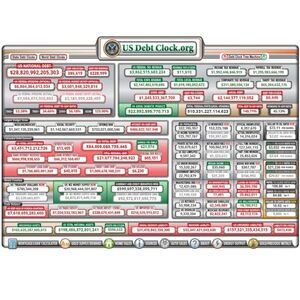
So, what happens if Congress doesn’t raise or suspend the debt ceiling? The House passed the debt ceiling suspension in a 219-212 vote on Wednesday but it is unlikely it will pass in the Senate – just like a recent bill passed in the House to suspend the debt ceiling through 2022.
A failure to pass a bill would lead to the Treasury not being able to have the cash to pay for their obligations, forcing the government to default on these payments. This is something the United States has never done as it would have serious consequences for financial markets.
Major headlines related to Congress recently have circled around the negotiations for the Bipartisan Infrastructure Deal and the Reconciliation Bill. These bills will be heavily affected if the debt ceiling is not raised or suspended because there will be not enough money to pay for extra obligations if the U.S. cannot cover its current debt. Essentially, everything that would be listed in those bills would not be able to receive funds.
Republican Minority Leader Mitch McConnell aims to support a short-term funding bill that would avoid a government shutdown until Dec. 3, but does not address a debt ceiling-related default.
*Update: The Senate on Thursday passed the short-term funding resolution by a vote of 65-35, while the House followed suit, 254-175.






